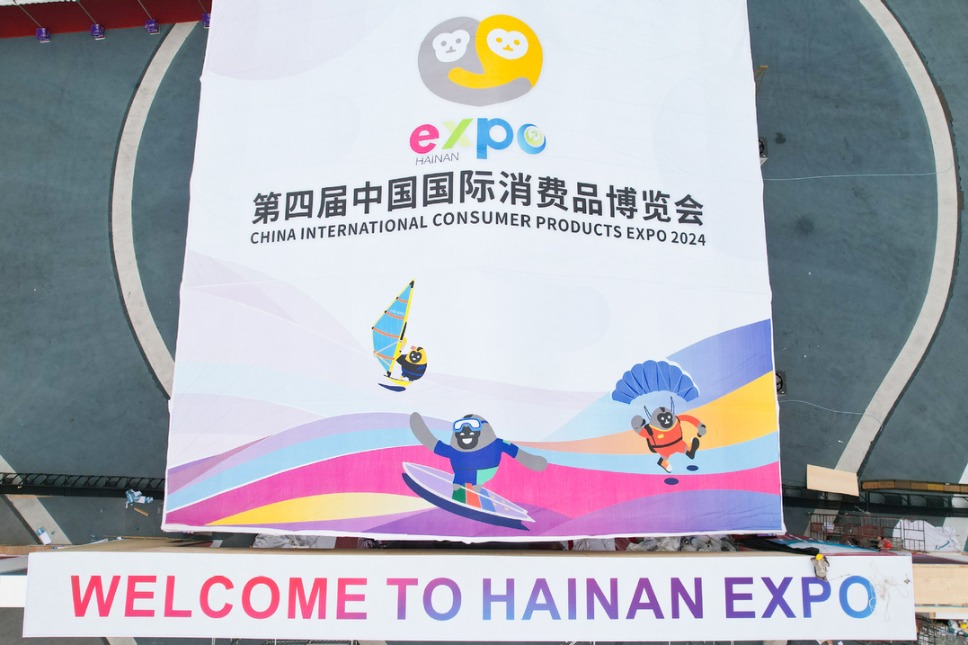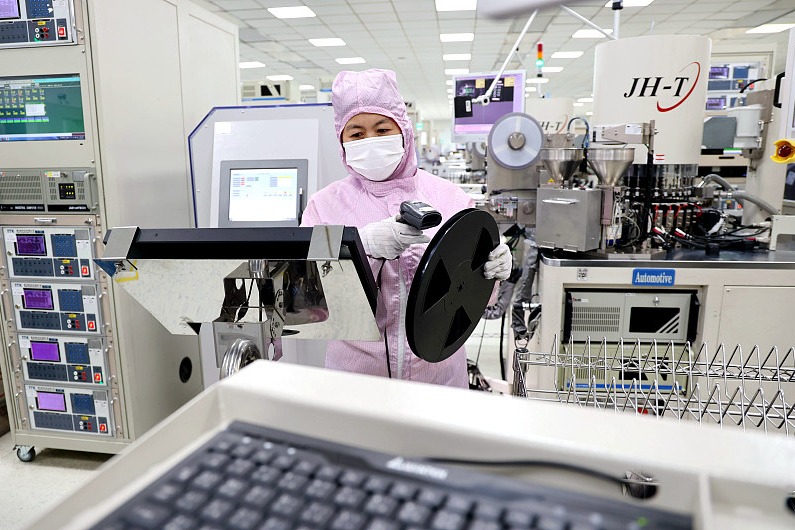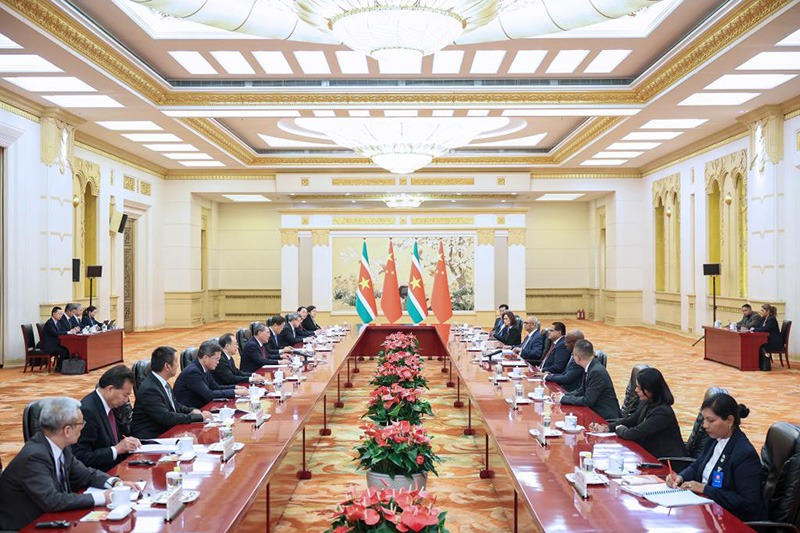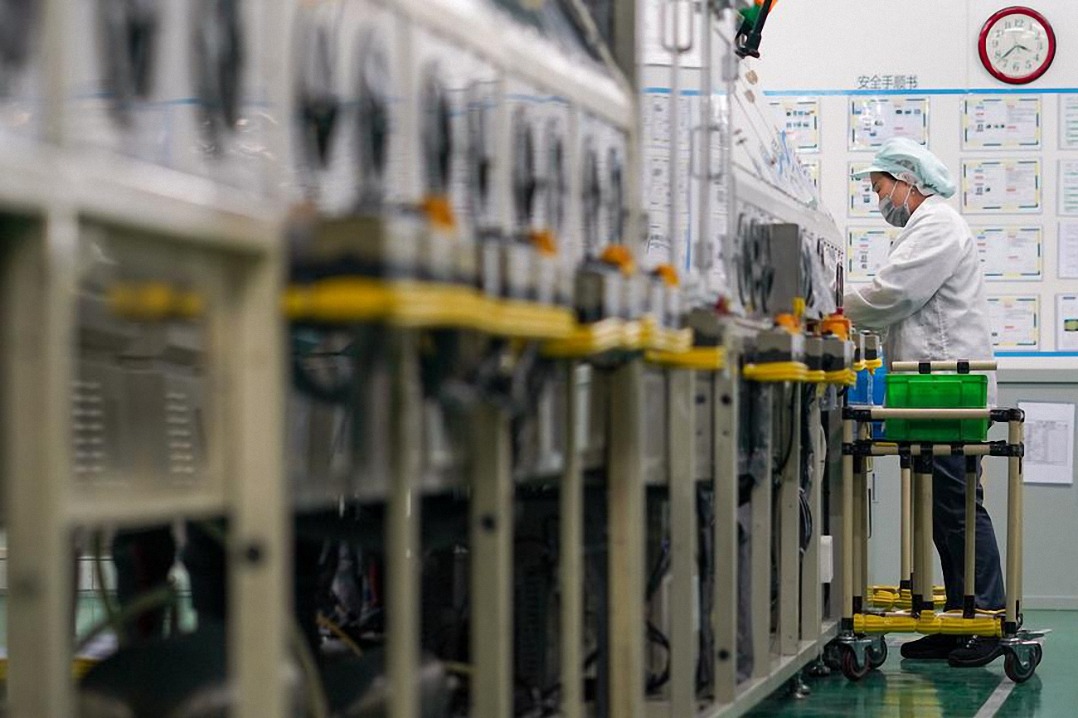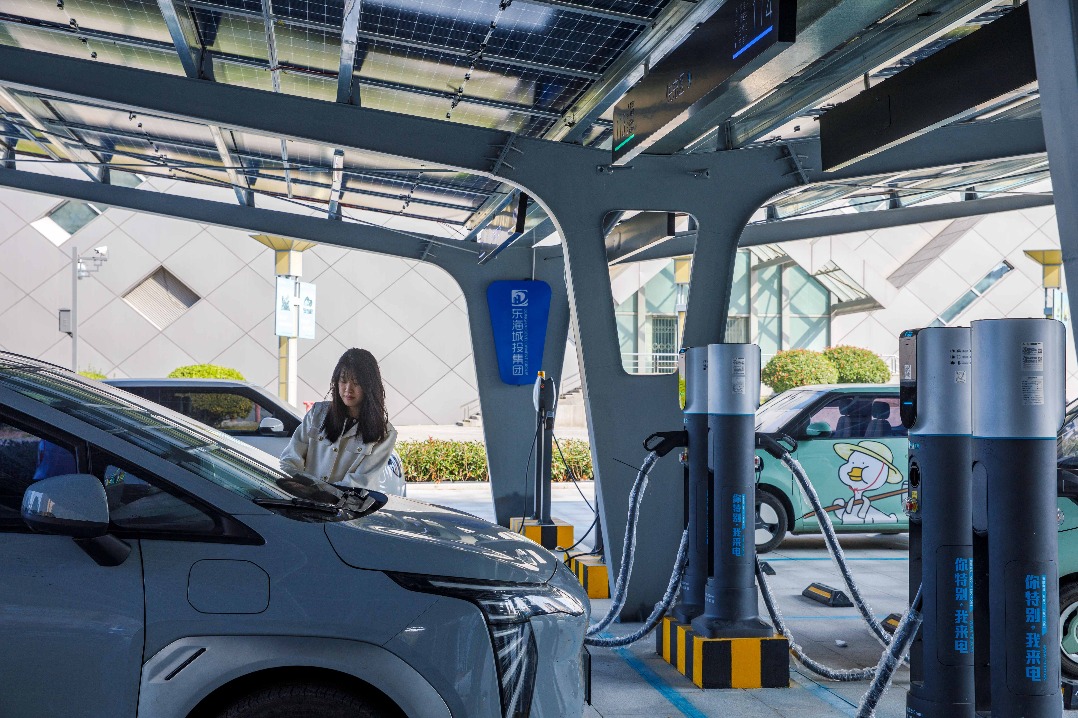Government pushes hydrogen technology up nation's agenda
Development of alternative fuel for road vehicles a top task for China this year, urges report

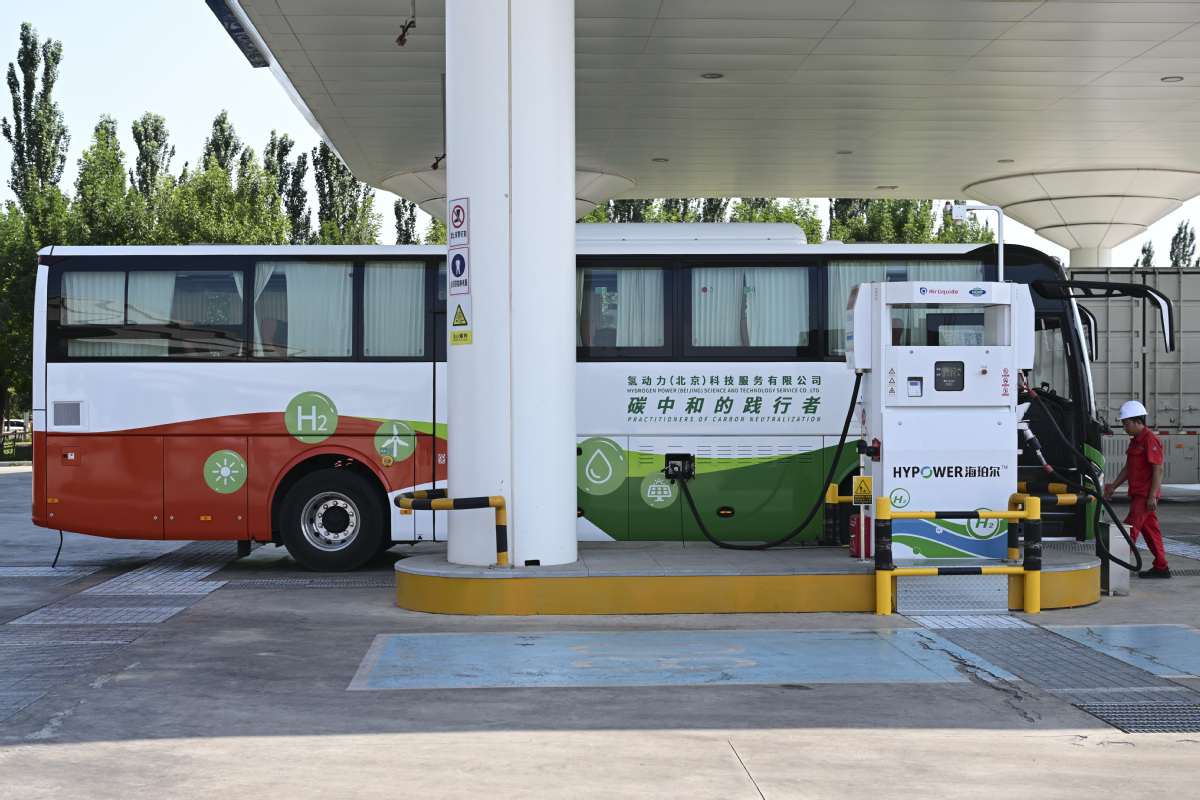
Fuel cell vehicles are expected to gain momentum as the development of the hydrogen energy sector is billed as one of the major tasks for the Chinese government this year.
According to this year's Government Work Report, to step up development of "cutting-edge sectors "including the hydrogen industry is one of the nation's fundamental industrial tasks this year.
Some National People's Congress deputies have also come up with proposals on developing the sector, which is believed to be the ultimate solution to vehicle emissions.
China has set a goal to have 50,000 fuel cell vehicles on its roads by 2025, according to its hydrogen development plan that was released in 2022.
Zhang Ronghua, an NPC deputy from Tianjin, said the goal is of strategic importance, but hindrances exist in some aspects.
She called for faster financial support from the authorities, adding that it now takes around two to three years for companies to receive their subsidies. The time span is causing financial problems for small companies.
Zhang Ronghua also proposed greater use of hydrogen vehicles, especially heavy-duty ones, in a larger scope geographically to speed up the sector's overall growth.
She was echoed by Zhang Guangyong, an NPC deputy in Shanxi province, who proposed that Shanxi should be added to the list of five major demonstration city groups for fuel cell vehicles, because of the province's rich hydrogen-making resources.
The five groups are the Beijing-Tianjin cluster, Shanghai and neighboring cities, cities in Guangdong province, cities in Henan province and cities in Hebei province.
Companies in the sector are more concerned about technological issues. Gong Mingming, head of public relations at FTXT Energy Technology, said the cost of green hydrogen as well as hydrogen storage and transport are major hurdles that are now affecting the sector's development.
FTXT is a leading Chinese company that specializes in the research and development, production and sales of hydrogen fuel cell products.
Gong added that the low efficiency of hydrogen refilling is another problem. China has more than 400 hydrogen stations, with another 300 under construction, ranking it first in the world.
"But some stations are retrofitted, where it will take more than 30 minutes to refill one vehicle," she said.
When confronted with such problems, Gong said companies throughout the industry chain should join hands to crack technological issues.
She also said the authorities should open up the sector and encourage demonstration projects in different sectors, from energy storage to power generation.
FTXT expects the first turning point for the sector to emerge around 2025, when the nation's fleet hit 50,000 units.
According to the China Hydrogen Alliance, the country's hydrogen output will reach 1 trillion yuan ($139 billion) by 2025.
The scale will see fuel cell systems' cost fall below 1,200 yuan per kilowatt and the price of hydrogen at refilling stations in some regions will be lower than 25 yuan per kilogram, according to FTXT's estimates.
Besides cost, progress has been made in core components like stacks. Earlier this month, FTXT showcased a range of core components at a fuel cell expo in Japan, including the 100 kW and the 255 kW engines, 300+kW graphite plate stacks as well as 70 megapascal storage tanks.
The company said the products are independently developed by FTXT and some of their key performance indicators have reached international pinnacles.
State-owned companies including Sinopec have made forays into the sector. Sinopec owns the biggest domestic fuel transportation network and has more than 30,000 retail stations. It is attempting to become China's top hydrogen supplier.
The energy giant sells more than 20,000 metric tonnes of hydrogen each year, accounting for roughly 40 percent of the total in the country, according to the National Big Data Alliance of New Energy Vehicles.
Consulting firm McKinsey & Co said as the traditional business model of oil and gas players is under pressure, investing in the sustainable-power value chain can provide them an opportunity to diversify and play a leading role as the industry transitions.
Some local authorities have announced favorable measures for fuel cell vehicles. In Shandong province, for example, fuel cell heavy-duty trucks are being spared expressway charges from March.
Expressway charges account for roughly a quarter of such vehicles' lifetime ownership cost, said the Jinan Times, a newspaper in Shandong province.
Also, the prices of fuel cell heavy-duty trucks have fallen to 1.3 million yuan now from around 2 million yuan in 2021.
Research organization BloombergNEF said hydrogen fuel cell vehicles are expected to experience a rapid expansion as China puts forward its dual carbon goals of peaking carbon emissions before 2030 and achieving carbon neutrality before 2060.



















